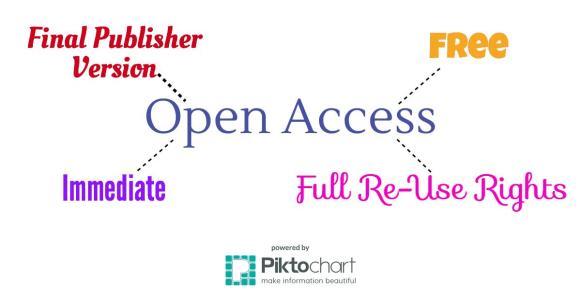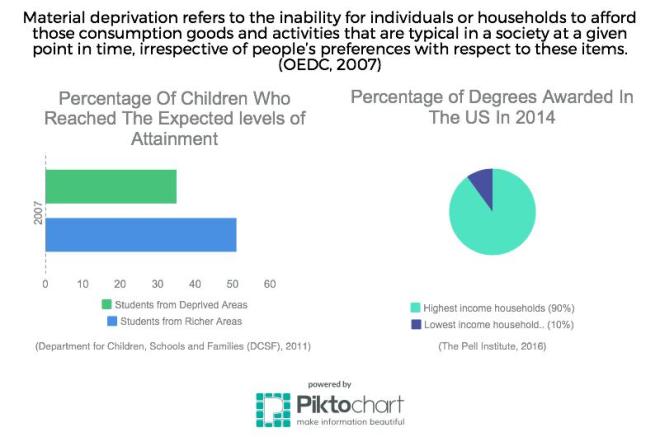In a society that is increasingly transitioning away from the focus on industrial and agricultural prowess, and further towards a ‘Knowledge-Based Economy’; there has been a growing discussion on Open Access and the Advantages and Disadvantages it brings to a content producer.
But, what exactly is ‘Open Access’?
This video and summary below perfectly defines this for us.

So, why the need for Open Access?
As previously discussed in Topic One, over the last 20 years, internet usage has exponentially grown and the rise of Digital Residents (White and Cornu, 2011) means that users are increasingly taking to the internet to expand their knowledge and enrich their identity. Without open access, only those willing to pay for this information will be able to access it, which in-turn creates a knowledge gap based on wealth and class. As a working class, lower income, university student, this would personally adversely affect my studies and restrict me from expanding my knowledge and horizons; I would not be able to afford expensive reports that students of a more affluent background perhaps could. In fact, Marxist Marcuse (1986) would argue that the limitation in enriching information, creates a ‘one-dimensional thought’ amongst the working class, forcing poorer people in to unquestioning, uneducated citizens who only have access to trivial materialism (as seen below), thus, highlighting the danger of restricting information behind expensive paywalls.

What about the rights of the content producer? I hear you ask… Despite the initial doubts surrounding rights, access and fees, Open Access focusses on ensuring that authors can freely distribute their work whilst keeping their rights and forcing other scholars to cite their work. As this video by Wiley explains ‘everyone can read it, and cite it and help give the exposure it deserves’ (Wiley, 2014) to help up-and-coming content producers get their work published. Furthermore, it also allows greater research and understanding, as users can use and build upon previous works with the help of a ‘Creative Commons Attribution Licence’ and make further advancements in their specialised field.
Of course, there are still arguments stating the disadvantages surrounding open access such as people failing to cite the content producer, and costs to make information open, however the videos and explanations explored in this post have hopefully made you more aware of the positives and have convinced you that open access is the way forward to boost this Knowledge-Based Economy in a fair and equal manner.
Word count: 404
References:
Ashraf, F. (2017). Digital Visitors or Residents, Which One Are You?. [online] Living and Working on the Web. Available at: https://faazila.wordpress.com/2017/02/12/digital-visitors-or-residents-which-one-are-you/ [Accessed 4 May 2017].
Creative Commons (2003). Creative Commons — Attribution 2.0 UK: England & Wales— CC BY 2.0 UK. [online] Creativecommons.org. Available at: https://creativecommons.org/licenses/by/2.0/uk/ [Accessed 5 May 2017].
Department for Children, Schools and Families (DCSF) (2011). Deprivation and education : the evidence on pupils in England, Foundation Stage to Key Stage 4 – Digital Education Resource Archive (DERA). [online] Dera.ioe.ac.uk. Available at: http://dera.ioe.ac.uk/9431/ [Accessed 5 May 2017].
ISET Policy Institute (2014). Knowledge Economy Visualized. [online] YouTube. Available at: https://www.youtube.com/watch?v=oBC7bA-PeSI [Accessed 2 May 2017].
Marcuse, H. (1986) One-dimensional man: Studies in the ideology of advanced industrial society. London: London Ark 1986, c1964.
OEDC (2007). OECD Glossary of Statistical Terms – Material deprivation Definition. [online] Stats.oecd.org. Available at: https://stats.oecd.org/glossary/detail.asp?ID=7326 [Accessed 5 May 2017].
Shockey, N. and Eisen, J. (2012). Open Access Explained! – YouTube. [online] YouTube. Available at: https://www.youtube.com/watch?feature=player_embedded&v=L5rVH1KGBCY [Accessed 5 May 2017].
The Pell Institute (2016). The Pell Institute for the Study of Opportunity in Higher Education Publications. [online] Pellinstitute.org. Available at: http://www.pellinstitute.org/publications-Indicators_of_Higher_Education_Equity_in_the_United_States_2016_Historical_Trend_Report.shtml [Accessed 5 May 2017].
White, D. and Cornu, A. (2017). Visitors & Residents. [online] Digital – Learning – Culture. Available at: http://daveowhite.com/vandr/ [Accessed 3 May 2017].
Wiley (2014). Understanding Open Access. [online] YouTube. Available at: https://www.youtube.com/watch?v=o2HMouOV-Lg [Accessed 5 May 2017].
Hey Faazila, thanks for this great post!
I completely agree in your sentiment that it’s unfair to hide academic articles behind paywalls and that it restricts the participation of those who cannot afford to purchase the content. I was wondering how you would feel about a system which would still require institutions to pay for access to journals, however instead of all of the money going to the organizations which run those journals, as it currently does, some of the money would also go to the academics who submit papers to the journals? I think this is an interesting idea as it facilitates the idea of open access where individuals can gain access to information if they are not affiliated with an institution, but also allows for publishing companies, and content producers, to profit from their work as is the capitalistic nature of our society?
I thought this was an interesting idea and would love to hear your opinion on it!
Thanks,
Ed
LikeLike
Hi Ed,
Thanks for taking the time to read and comment on my post, it’s always appreciated!
I really like this proposed idea; it would be like sites such as Jstor which provide access to these journals, but it would benefit the content producers – in this case the authors – further. Certainly, money is a motivation for most, I believe this proposal would see the rise of more research and advancements as people would now have the incentive to share their work.
Also, I suppose if universities pay for the access of these journal articles it would help to eliminate class differences within the education system; but do you believe it would still restrict those who couldn’t afford university? And is this fair – considering we pay £9,000 a year one may argue this is just something we would be actually paying for? Although I appreciate that this line of debate leads on and deviates to the bigger controversial issue of the increases in tuition fees, it would be interesting to see your take on it.
Thanks,
Faazila!
LikeLike
Hey Faazila!
It is clear that you have learnt a lot through the process of this module, with some relevant links to the stuff you wrote about in topic one. I also appreciated your honesty in the blog, making it your own take on the agenda rather than writing what people want to hear.
I also agree with you that I do not like the concept of ‘open access’ disappearing, as information and knowledge, especially within a certain field should be accessible for anyone. It is ridiculous that you have to pay a lot of money for some articles and they might not be any use to you.
How do you feel about other organisations such as newspaper companies no longer making their information accessible? This article might be of interest to you in answering the question.
View at Medium.com
Regards, Alex
Words:140
LikeLike
Hey Alex,
Thank you for your feedback, I really appreciate the kind comments! It’s been nice to finally write about something that I feel strongly about at university.
I didn’t even think of the point about not knowing the relevance of an article until you’ve paid for it, until I read your post and comment; so, thank you for highlighting yet another argument for Open access.
As for your question, I’m of a split opinion. Where I appreciate, and have taken full advantage of the free online articles, we have to remember that newspapers and media outlets are more of a business than they are educative sources; so they do need to make profit to survive especially as advertising revenue is ever declining, an issue which this article goes in to further depth: https://www.wsj.com/articles/plummeting-newspaper-ad-revenue-sparks-new-wave-of-changes-1476955801. I believe the growth in social media news reporting will help to combat the restriction of traditional news outlets; but again, this media gate-keeping of information is very vast and complicated topic.
Thanks for taking the time to read my blog,
Faazila
LikeLike
[…] and myself both agreed in our discussion about ‘open access’ information, especially in regards to academic journals. In fact, we […]
LikeLike
[…] Open Access – For Fair and Equal Access of Information […]
LikeLike